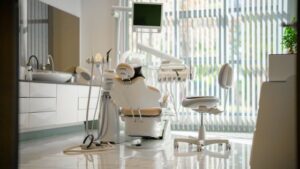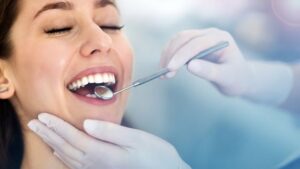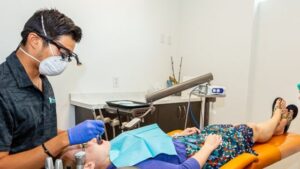

Schedule Your Biannual Dental Cleaning
To promote healthy teeth and gums, dental cleanings and regular check-ups should be or become a regular component of your dental care. Our dentist in St. Petersburg recommends that you have your teeth cleaned and check-ups twice a year. Of course, if you have more problems with your teeth and gums (for example, cavities, tooth loss, gingivitis, or periodontal disease), we recommend that you see Dr. Brian Leeson more frequently. Let this blog serve as a reminder to schedule your dental cleaning.
What is the significance of dental cleanings?
Dental cleanings are essential for maintaining good dental hygiene. Bacteria can accumulate in your mouth and create dental problems such as gingivitis, dental caries, discoloration, and even dental abscess if you do not practice good oral hygiene. Furthermore, it is crucial to realize that dental cleaning does not only comprise regular brushing and flossing. There’s more to it than that. Although self-cleaning is essential, seeing your dentist in St. Pete for regular check-ups is also beneficial. They see things that you cannot see, like the cracks and crevices between your teeth. In the long term, this prevents dental disorders.
Why is it vital to get frequent dental check-ups?
It is critical to have frequent dental check-ups every 6 months so that your dentist can detect any changes in your oral health. If there are any problems, they will be recognized early on and will be easy to resolve.
Furthermore, your dentist may be able to detect any medical conditions you may be experiencing. There is, for example, a clear link between periodontal disease and heart disease. If your dental exam reveals the beginnings of periodontal disease, you should see your primary care provider for further evaluation and diagnosis.
What can you expect from your dental exam?
A standard dental check-up consists of two key components: a history and an examination. These are pretty much the same across the country. We asked our friends at College Hill Dental Group, Easton PA dentist, if their standard exams looked similar to ours. They agreed that the following steps are similar at their practice. First, your dentist will ask you about your recent medical history and examine your mouth during your visit.
Medical Background
Your medical history is a significant factor in determining your risk of acquiring oral health problems (e.g., tooth decay, gum disease, oral cancer). Your dentist may ask you questions about your lifestyle, such as eating habits, smoking, alcohol consumption, brushing, and so on. In addition, if you have a history of dental disorders, you will be asked about it.
Examining
Your hygienist will clean your teeth first, followed by a comprehensive examination of your oral mucosa, teeth, gums, the top and bottom of your mouth, and your neck for symptoms of illness, cavities, or cancer. Plaque buildup can result in cavities, gum inflammation (gingivitis), or painful red, puffy, bleeding gums (periodontal disease). If you have any of these dental issues, your dentist will advise you on the best course of action.
X-Rays
X-rays are often ordered once a year as part of a standard annual dental check-up. These photos assist the dentist in determining whether or not your teeth have changed over time. X-rays may also be requested for people who have toothaches or other dental issues. These photos will assist the dentist in determining the best course of treatment.
Screening for Oral Cancer
The goal of an oral cancer screening is to detect mouth cancer early, when there is a better possibility of curing it. Your dentist examines your lips, mouth, and neck for cancer indications such as a lump, plaque, or ulcer in the oral cavity and swollen lymph nodes in the neck. This is why it is so important to schedule your dental cleaning.
Bite Evaluation
Dr. Brian Leeson will determine whether or not your jaw is in good condition. If you are having difficulty biting or grinding your food, he will interpret. Your temporomandibular joint (TMJ), or jaw joint, is also evaluated for this purpose. You will be asked to bite normally, and the dentist will listen carefully for any clicking or popping sounds. Your doctor will also palpate your jaw and look for soreness.
Schedule your biannual cleaning today
As you can see, biannual dental cleanings are an important component of your overall health. For optimal oral health, we strongly urge you to come see us at 4th Street Family Dentistry for a professional dental cleaning twice a year. Contact our team today to schedule your next visit.






